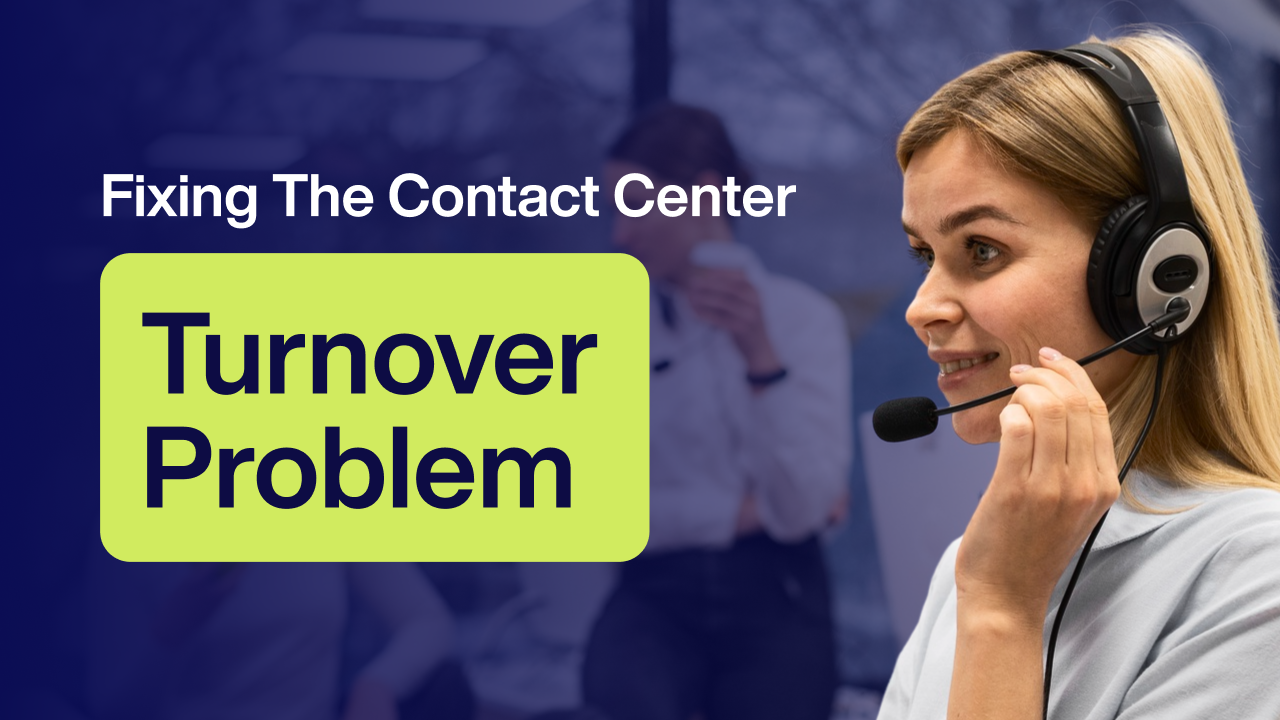Analyzing the Nationwide Impact of Minimum Wage Inceases: Leveraging Outsourced Call Center Operations for Sustainable Business Growth
.jpg)
Executive Summary
The nationwide implementation of minimum wage increases has brought about significant changes to the operational landscape for businesses across the country. The rise in labor costs and regulatory compliance challenges, particularly impacting small and medium enterprises (SMEs), necessitates a strategic approach to maintain operational efficiency.
This white paper aims to analyze the broader effects of minimum wage increases on businesses nationwide and proposes the strategic outsourcing of call center operations to third-party providers or Business Operations.
The Highlights
- National Impact of Minimum Wage Increases: The paper explores the widespread consequences of minimum wage hikes across various sectors, highlighting the challenges faced by businesses nationwide in terms of heightened labor costs and increased regulatory compliance obligations.
- Strategic Outsourcing as a Mitigation Strategy: A key focus of the paper advocates for strategic outsourcing of call center operations to third-party providers or Business Operations Processors (BPOs). This approach is a viable solution to alleviate the impact of minimum wage increases, offering businesses cost efficiencies and operational flexibility.
- Sustainable Business Growth in a Dynamic Regulatory Landscape: The analysis emphasizes the importance of businesses adapting to the evolving regulatory landscape. By leveraging outsourcing and carefully considering key factors such as vendor selection, data security, and contractual agreements, businesses can not only navigate challenges posed by minimum wage increases but also ensure sustained growth and competitiveness nationally.
Introduction
The nationwide push for minimum wage increases, driven by legislative efforts to address income disparities, requires businesses to adapt to changing economic conditions. This paper explores the impact of these wage increases on businesses across the country and advocates for the outsourcing of call center operations as a strategic response.
Outline of Minimum Wage Increases:
The phased increase in minimum wage rates introduces a dynamic puzzle for businesses nationwide, requiring a keen strategic approach. This economic transition, spurred by legislative changes, demands businesses to not only reassess their financial models but also rethink their operational strategies.
Impact of Minimum Wage Increases on Businesses:
- Increased Labor Costs
Mandated minimum wage hikes result in higher payroll expenses, impacting businesses' profitability on a national scale.- Industry-Specific Impact:
Certain industries, especially those with traditionally lower pay scales, might witness a more pronounced impact from the minimum wage surge. Businesses need to identify how their industry nuances play into this financial adjustment. - Geographical Considerations:
Map out your business strategy on a regional scale. Minimum wage changes are not uniform across the nation, akin to varied rules in different territories. Understanding the geographical nuances will be helpful to define your strategy to mitigate impacts specific to each location. - Workforce Dynamics:
When minimum wages rise, it's not just a payroll adjustment; it can trigger a ripple effect within the workforce. Businesses need to anticipate shifts in employee expectations and possibly recalibrate team structures to maintain optimal efficiency.
- Industry-Specific Impact:
- Compliance and Administrative Burden :
Adhering to new regulations entails additional administrative tasks, consuming resources, and time for businesses across the country.- Regulatory Adherence as a Competitive Edge:
Think of compliance as a strategic advantage. Staying ahead of regulatory changes and aligning business practices accordingly not only ensures legal compliance but also positions the business as an industry leader committed to ethical and legal standards.
- Regulatory Adherence as a Competitive Edge:
- Competitive Disadvantage
Small and mid-size enterprises (SMEs) may face challenges competing with larger enterprises due to increased operational expenses nationwide.
In essence, tackling the minimum wage increase isn't just a financial adjustment; it's a strategic maneuver. It involves a deep dive into industry dynamics, geographical variations, workforce structures and regulatory landscapes. Businesses need to approach this puzzle with strategic acumen, ensuring they not only adapt but thrive in the evolving economic terrain.
Outsourcing Call Center Operations as a Strategic Solution:
Cost Efficiency
Outsourcing call center operations emerges as a strategic financial maneuver for businesses navigating the intricate landscape of rising minimum wages. By strategically relocating these operations to regions with more favorable labor costs through established third-party providers or Business Process Outsourcing (BPO) entities, businesses can substantially optimize their financial structures on a national scale.
The cost differentials between outsourcing and maintaining in-house call center operations can be transformative. Businesses not only benefit from the immediate reduction in labor costs but also gain the flexibility to reallocate these financial resources strategically. This financial agility provides a critical edge, enabling businesses to not only adapt to increased wage costs but also to channel savings into other growth-oriented initiatives.
Access to Expertise
Utilizing specialized skills and technology offered by BPOs enhances service quality and operational efficiency for businesses nationwide. In the realm of strategic outsourcing, it's not just about cost reduction; it's about tapping into a pool of specialized skills and cutting-edge technology. Business Process Outsourcing partners often bring a wealth of expertise to the table, encompassing the latest technological advancements and industry best practices. Think of this as a knowledge infusion. By leveraging the expertise offered by BPOs, businesses elevate their service quality and operational efficiency on a national scale. These specialized skills extend beyond mere cost considerations; they become a competitive advantage, enhancing the overall customer experience and ensuring the delivery of high-quality services.
Flexibility and Scalability
Outsourcing allows businesses to scale operations as needed, relieving the burden of managing in-house infrastructure and staffing across the country. Outsourcing isn't just about cost savings; it's a strategic move that liberates businesses from the shackles of managing in-house call center infrastructure and staffing. This is akin to shedding unnecessary operational weight, fostering agility, and embracing scalability. Imagine the liberation from the intricacies of staffing and infrastructure management. Outsourcing allows businesses to scale operations seamlessly, adjusting capacities as needed to meet market demands. This operational flexibility is particularly vital in a landscape influenced by fluctuating minimum wages. It's about having the freedom to adapt swiftly, ensuring that businesses remain nimble and responsive to evolving market dynamics on a national scale.
Strategic outsourcing of call center operations is not just a cost-saving tactic; it's a comprehensive strategy that aligns financial prudence with operational excellence. Businesses that embark on this outsourcing journey gain not only immediate financial relief but also access to specialized expertise and the freedom to scale operations, laying the groundwork for sustained growth and competitiveness across the nation.
Considerations for Businesses
Vendor Selection
Carefully vetting and choosing reputable BPOs with a history of delivering quality services is paramount nationwide.
Choosing the right Business Process Outsourcing (BPO) partner is akin to selecting a trusted ally in the journey towards operational excellence. It goes beyond a mere transaction; it's about forging a strategic partnership that propels businesses to new heights on a national scale.
Consider this as a meticulous matchmaking process. Careful vetting and selection of reputable BPOs become paramount in this pursuit. Businesses should delve into the BPO's track record, examining their history of delivering quality services and their ability to align with the specific needs and values of the business. This partnership is not a one-size-fits-all; it's about finding a BPO that not only meets current requirements but also aligns with the long-term vision and growth trajectory of the business.
Data Security and Compliance
As businesses embark on the outsourcing journey, the commitment to data security and regulatory compliance takes center stage. It's not merely a checkbox exercise; it's about safeguarding the integrity of the business, especially when operating on a national scale with diverse regulatory landscapes.
Think of this as building a fortress for sensitive information. Ensuring that chosen BPO providers adhere to stringent data protection regulations and industry compliance standards becomes a non-negotiable aspect. This involves a thorough examination of their data security protocols, privacy measures, and overall compliance framework. By doing so, businesses fortify their operations against potential risks, fostering a secure and compliant environment that instills confidence both internally and among clients nationwide.
Contractual Agreements
In the realm of outsourcing, clear and comprehensive contractual agreements serve as the blueprint for success. It's not just about signing on the dotted line; it's about establishing a robust framework that underpins the entire outsourcing partnership on a national scale.
Imagine this as laying the foundation for a sturdy structure. Businesses should ensure that service level agreements (SLAs) are not just boilerplate documents but tailored to address the unique requirements and goals of the business. Clarity in terms, well-defined performance metrics, and a transparent understanding of expectations become vital components. These agreements act as the guiding principles, aligning the interests of both parties and providing a roadmap for a successful and enduring outsourcing partnership nationally.
Considerations for businesses extend far beyond the initial decision to outsource. It's a strategic orchestration that involves selecting partners with precision, fortifying against potential risks, and laying down the groundwork for a partnership that transcends transactional boundaries, contributing to sustained success on a national scale.
Conclusion: Charting a Course for Success
In the face of escalating minimum wages nationwide, businesses encounter a multifaceted challenge requiring strategic adaptation. This white paper unveils a path not only to mitigate challenges but also to foster sustained growth and competitiveness.
Strategic Adaptation to Minimum Wage Increases
The phased rise in minimum wage rates demands a strategic approach, necessitating businesses to reassess financial models and operational strategies. From industry-specific impacts to recalibrating workforce dynamics, addressing minimum wage increases requires strategic acumen beyond financial adjustments.
Outsourcing as a Comprehensive Strategy
Strategic outsourcing of call center operations emerges as a transformative solution, aligning financial prudence with operational efficiency. Beyond cost savings, outsourcing provides flexibility, scalability, and access to specialized skills. It allows businesses to adapt swiftly to evolving market dynamics on a national scale.
Choosing Strategic Allies
Selecting the right Business Process Outsourcing (BPO) partner is pivotal. Meticulous vetting ensures a partner aligned with the business's long-term vision. Commitment to data security and compliance fortifies operations, creating a secure environment nationally.
Contractual Agreements: The Blueprint for Success
Tailoring service level agreements (SLAs) ensures clarity, well-defined metrics, and a transparent understanding of expectations. These agreements serve as the blueprint for partnerships transcending transactional boundaries, contributing to sustained success on a national scale. In summary, as businesses navigate rising minimum wages, the strategic approach outlined becomes a guiding force. Through outsourcing, meticulous vendor selection, commitment to data security, and clear contractual agreements, businesses can rise above challenges and embrace sustained success nationally.
Disclaimer: This white paper offers informational insights and recommendations. Businesses are advised to conduct their research and seek professional consultation before making operational decisions.
No Spam —
Just Good Stuff.
Join our newsletter for actionable advice, insider knowledge, and strategies that drive real results.
No fluff, just value.
%20(1).png)

.png)


























































































.png)
.png)
.png)



.png)
.png)
.png)
.png)